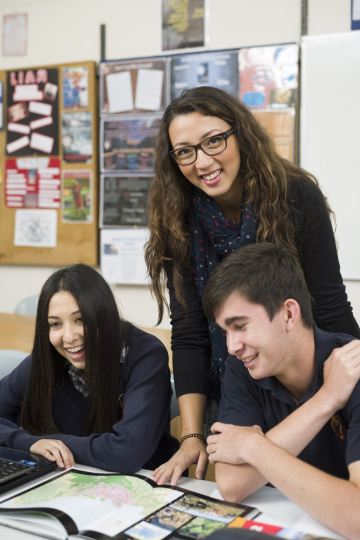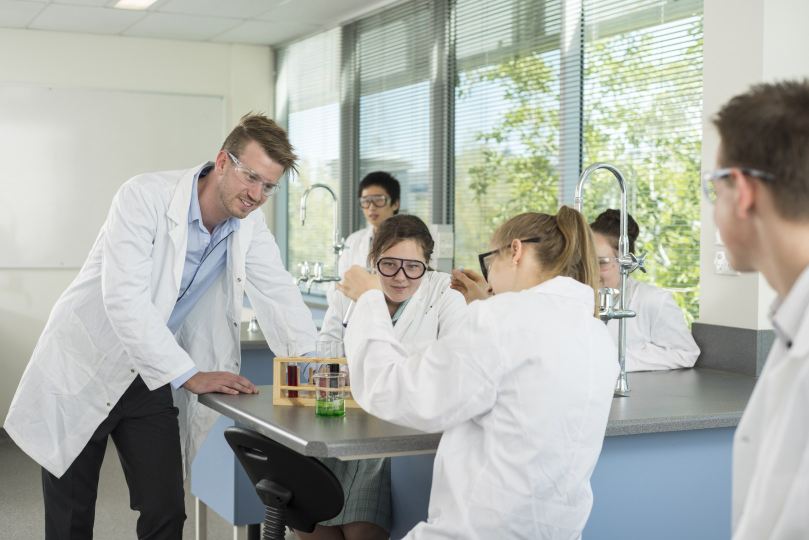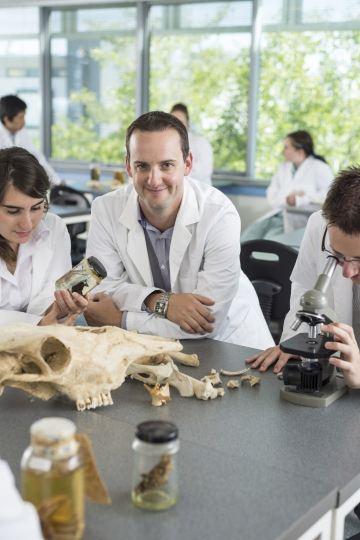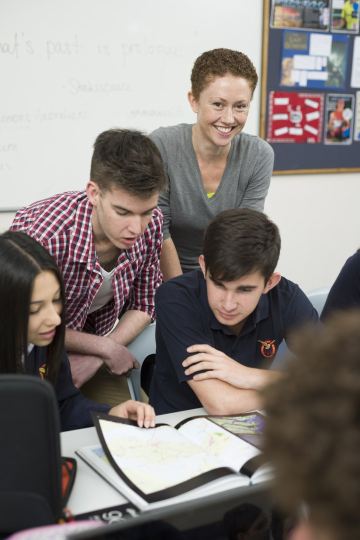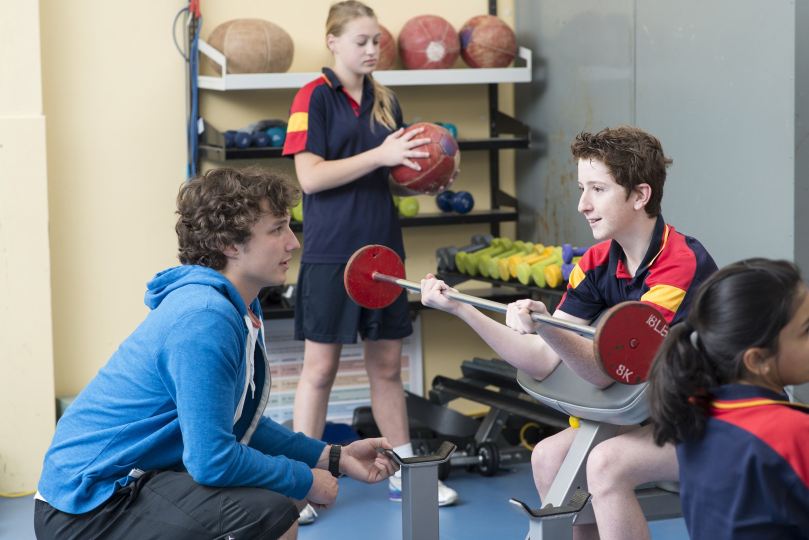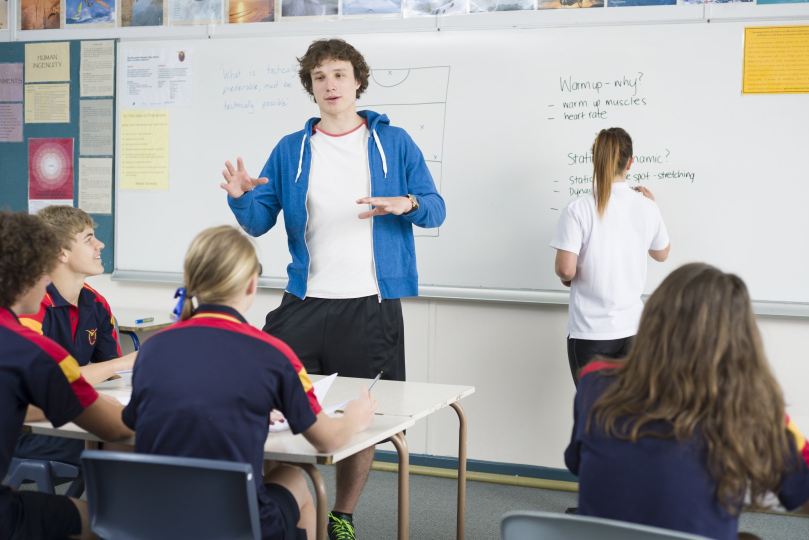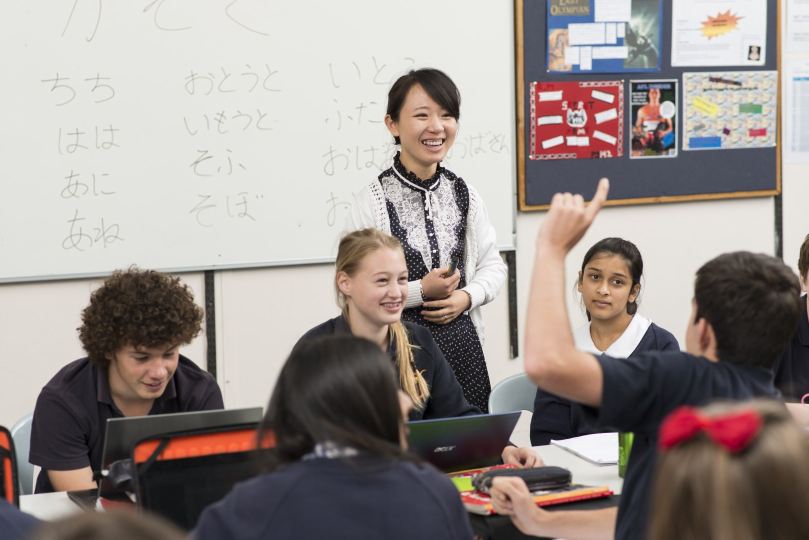Master of Teaching (Secondary)
Degree Level Postgraduate
Year 2025
You're considered an Australian student if you are any of the following:
Degree Level Postgraduate
Year 2025
Program Code
MMET
Study as
Full-time
or part-time
Mode
On-campus
Applicants must have completed:
To qualify for a Major Learning Area, applicants must have completed a minimum of six courses in a Learning Area that aligns with the Australian Curriculum. A maximum of two of those courses must have been completed at the first-year level and a minimum of two courses at the third-year level.
To qualify for a Minor Learning Area (not essential), applicants must have completed four courses in a Learning Area that aligns with the Australian Curriculum. A maximum of two of those courses must have been completed at the first-year level.
Critical information regarding Learning Areas entry requirements can be found here.
-----Additional entry requirements-----
In accordance with national teacher education program standards, applicants must also fulfil non-academic entry requirements. All applicants will be required to submit a 400-600 word Teaching Capabilities Statement with their application. Complete information on content, format and submission is available here.
Applicants are advised that a successful Working with Children Check (WWCC) with the Department of Human Services is required for all preservice teachers prior to undertaking any professional experience placement or site visit that involves contact with minors (under 18 years of age). Information on the procedure to be followed for obtaining clearance can be found on the Professional Experience Placement website.
Due to program structure requirements, students commencing mid-year in the Health and Physical Education Learning Area will require 2.5 years to complete their program, with some semesters taken at a part-time load. Please note mid-year entry into the Health and Physical Education Learning Area is only available for domestic students.
12024 THE Subject Rankings
2Results for Specialist Studies in Education - 2018 Excellence in Research for Australia (ERA).
3UNSTOPPABLE® is a Kellogg Company trade mark used under licence. Ranked #43, 2024 THE Young University Rankings.

This industry-relevant postgraduate qualification is for students who have already completed a three-year bachelor's degree and would like to increase their employment prospects with a teaching qualification specialising in secondary education. The curriculum is solely focused on the education of children from Year Seven to Year 12.
Practical learning is a major component and you will complete 60 days of professional experience placements, starting in your first year.
The Secondary specialisation is taught at Mawson Lakes campus only.
Applications to this program are online via SATAC's postgraduate portal. SATAC codes:
If you wish to accelerate your studies you can complete this degree in 18 months. In order to do so, your year will have three study periods (rather than the usual two).
Find out how to become a specialist secondary teacher and the options available on our How to Become a Teacher page.
Please note that this degree uses a blended learning approach and parts of this degree may be studied online. Some on-campus, in-person attendance (seminars, workshops etc.) and/or placements apply.
The Australian Government is providing financial support for initial teacher education (ITE) students commencing full-time teaching degrees from 2024. You could be eligible for up to $20,000. Conditions apply. Find out more.
WWCC clearance
Preservice teachers will be required to undertake a Working with Children Check (WWCC) through the Department of Human Services (DHS). The clearance will be valid for five years. The WWCC must be completed prior to being accepted for a placement and can take up to six to eight weeks to be processed. Strict confidentiality is maintained during the DHS clearance process. If a preservice teacher fails to obtain clearance for any reason, the University cannot accept responsibility for obtaining a professional experience placement or any other professional experience activity that a preservice teacher may require to complete the course of study. If preservice teachers cannot undertake a professional experience placement or any other professional experience activity which is a compulsory part of the program, they cannot graduate with an Initial Teacher Education degree from UniSA.
Mandatory child-safe environments training
All education students who are completing any in-school or site (i.e. preschools and childcare settings) observations, activities or professional experience placements must undertake mandatory training in Responding to Risks of Harm, Abuse and Neglect (RRHAN-EC) prior to the commencement of the activities or placements. In South Australia, child protection legislation and policy require all organisations to establish and promote child-safe environments. Mandatory reporting of child harm, abuse and neglect training is required of all individuals working with children and young people. All students undertaking professional experience placements in South Australian government and non-government schools and preschools must provide documented evidence (i.e. a certificate) that shows they have completed all the required training from one of the providers mentioned on the following website.
Literacy and Numeracy Test
All preservice teachers must meet the required standard in the national Literacy and Numeracy Test for Initial Teacher Education (LANTITE) to be eligible for program completion and graduation. Preservice teachers will attempt LANTITE as they progress through their program. Preservice teachers will be required to successfully achieve both the literacy and numeracy components of LANTITE as a prerequisite for enrolment in their final Professional Experience Placement course. The University will provide a range of support for preservice teachers to help them achieve the required standard. Preservice teachers will be allowed three attempts at each test. Any preservice teacher who fails to meet the standard on three occasions in either the literacy or numeracy test will be counselled regarding options.
Please note new entry requirements and learning area specialisations.

This degree has been designed to develop skilled, committed and flexible secondary school educators. The focus is on practical learning and you will gain the skills needed to teach across the core curriculum learning areas in schools from Year Seven to Year 12. There are four major study areas:
Courses studied will include on-campus lectures and workshops; some courses will also be offered fully online or with online support. Learning will be supplemented with online lectures, learning activities, readings and discussion boards.
During the degree you will participate in 60 days of supervised placements.
Students can also elect to study Australia's only minor specialisation in Islamic pedagogy, which will equip graduates with knowledge and inclusive practice through two courses in Islamic Pedagogy: Principles and Praxis, and Islamic Pedagogy: Quality Teaching and Learning. The Islamic pedagogy minor specialisation aims to promote effective and inclusive learning for teaching secondary students in Islamic schools or schools with Muslim students.

We are South Australia's largest tertiary provider for education degrees. Practical learning is a major focus and you will gain industry experience starting in your first semester.
As Australia’s university of enterprise:
Our commitment to research with an industry focus is unprecedented in South Australia. It’s a very good time to choose UniSA for your postgraduate study.
1Ranked #43, 2024 THE Young University Rankings.
Hear from UniSA graduate and secondary school teacher, Joshua Lamb, about his experience studying the Master of Teaching (Secondary) at UniSA and how it has helped him reach his career goals.
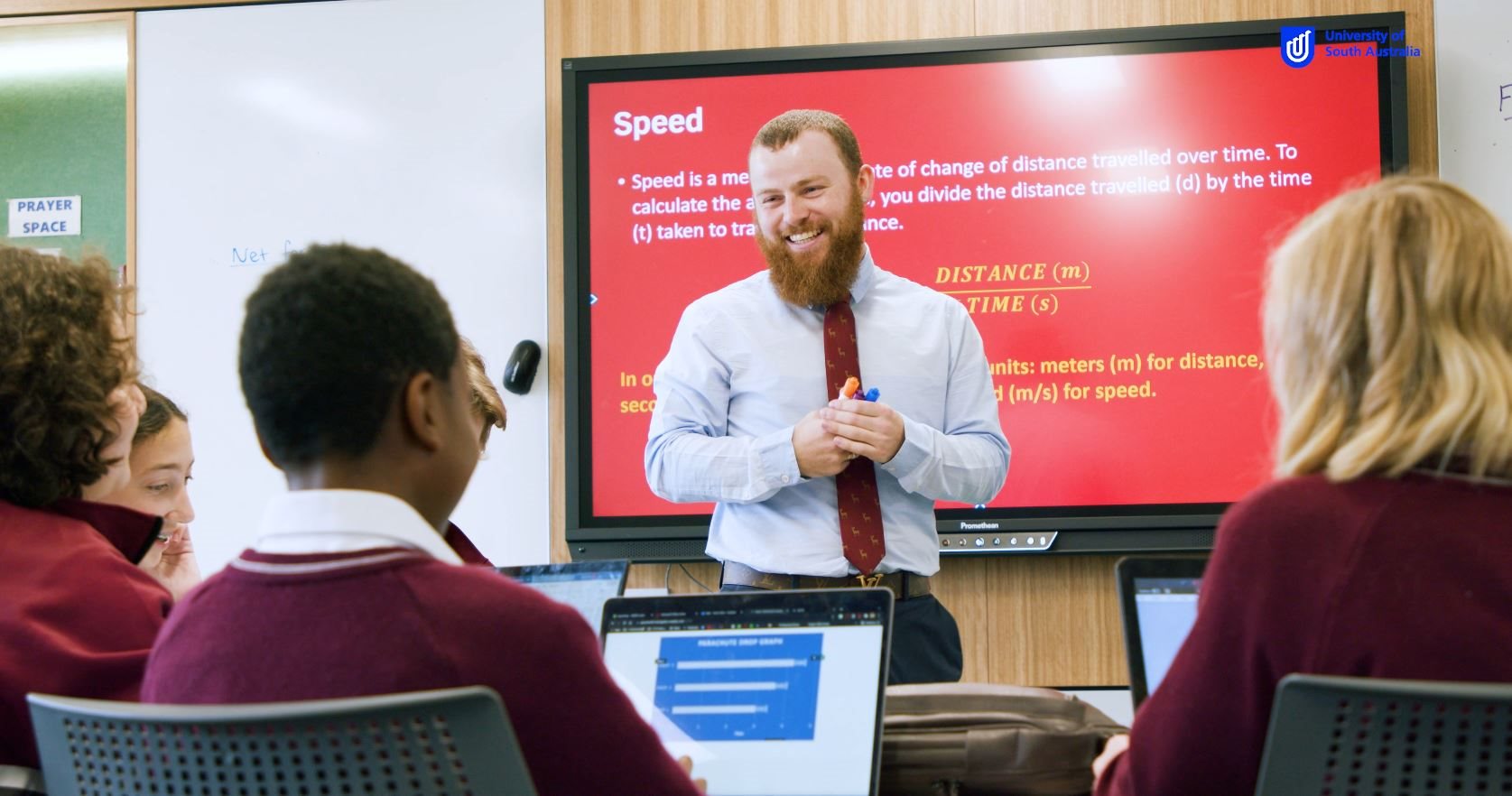
Teachers have a passion for learning and a dedication to the social, emotional, academic, physical and psychological development of students. Well-developed interpersonal skills, patience, as well as impeccable organisational and communication skills are key attributes of successful educators.
The demand for teachers is strong1. Graduates are able to gain employment as secondary teachers in schools and related educational fields in metropolitan and regional centres nationally and internationally. Employers include:
1Australian Government, National Skills Commission, Job Outlook 2020
Successful completion of this program provides a recognised academic qualification which will enable graduates to apply for teacher registration in South Australia, interstate and some overseas countries. Applicants should note there are other criteria determining eligibility for registration by the Teachers Registration Board of South Australia and other registration and regulatory authorities. Applicants are advised to check registration requirements as they are subject to change.
Have any questions? We're here to help! Contact Adelaide University's Future Student Enquiries Team.
Applying to study with us:
SATAC codes:
-----Additional entry requirements-----
In accordance with national teacher education program standards, please note that as part of your SATAC application, you are also required to meet non-academic entry requirements.
All applicants who wish to commence study in our Education degrees are required to submit a 400-600 word Teaching Capabilities Statement in addition to your SATAC application. This supports the national priority to ensure those entering the teaching profession have the personal qualities to best support learners and graduate as classroom ready, high quality teachers.
The Teaching Capabilities Statement complies with the national Australian Institute for Teaching and School Leadership (AITSL) initial teacher education program standard of academic and non-academic entry requirements. Further information can be found on the Entry Requirements page.
Every year, over 2,500 UniSA students are supported in their studies through scholarships and grants worth millions of dollars. Check out the scholarships below. One of them may be perfect for you. Visit our scholarships page for more.
Available for students who are interested in undertaking specified activities with the aim of enhancing the overall student experience at UniSA.
Travel Grants are available to participate in our Study Overseas Programs. UniSA has agreement with over 80 institutions globally.
Our campuses have fantastic facilities including modern lecture theatres, libraries, workshops, laboratories, tech zones, and spaces that simulate real work environments. You’ll also find student gyms and campus sport activities to keep you active. We also offer flexible study options, with online resources available for accessing lecture recordings, virtual classrooms, library resources and learning support.
Adelaide also has a variety of accommodation options to suit different requirements and budgets. Options include dedicated student accommodation and private rentals. See our long-term accommodation pages, or explore our student accommodation by Scape on Bank Street in Adelaide’s lively cultural precinct, an ideal location for students. It is within easy reach of UniSA’s city and metropolitan campuses, Rundle Mall shopping, the Central Market, Chinatown, and the West End’s vibrant nightlife. It is also across the road from the Adelaide train station, and on bus and tram routes.
My vision is to work collaboratively to equip graduates with qualities that promote learner achievement and wellbeing, which transfers to productive citizenship.
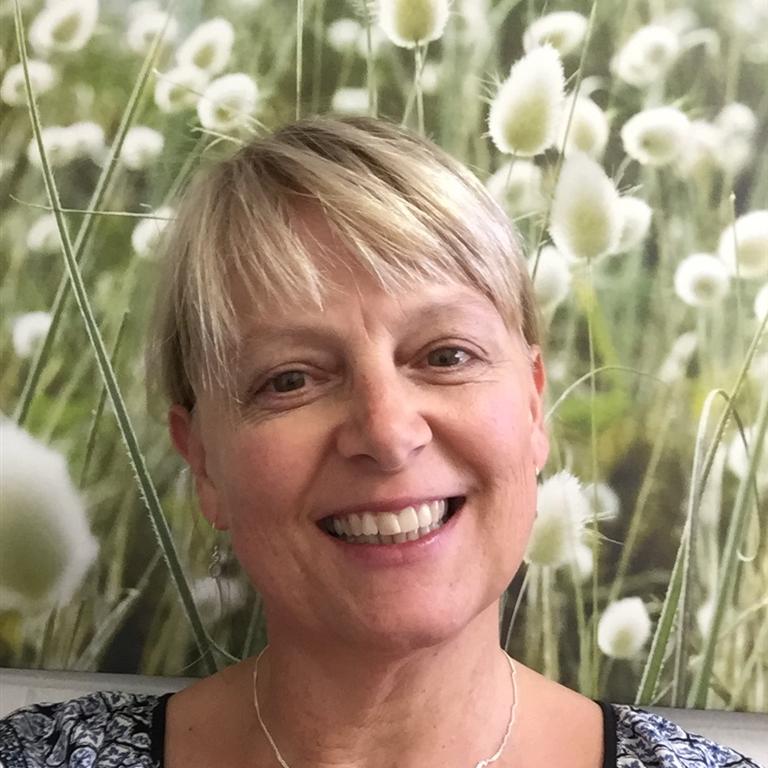
The way you apply for UniSA will depend on the undergraduate or postgraduate coursework degree you're interested in studying.
The majority of applications are made via the South Australian Tertiary Admissions Centre (SATAC). Check out more information on the SATAC website and follow the appropriate process for your degree of interest.
There are a small number of degrees that you need to apply for through direct application processes. The process you need to follow will be listed on the 'How to Apply' section of the degree homepage, but you'll also be taken to where you need to go if you hit the 'apply' button.
If you are interested in studying one of our 100% online degrees you'll need to apply directly to UniSA Online.
You can find more information about the application processes for UniSA on our How to Apply webpage.
If you're more interested in applying for a postgraduate degree by research, check out and follow the information in our step by step guide to applying.
Applications for all degrees will close ahead of study commencing, but the timelines may vary for undergraduate and postgraduate degrees.
The deadline to apply to study a degree at UniSA for semester one (commencing late February) and be guaranteed equal consideration is generally in very late November or early December. While you may be able to apply after this date, you are not guaranteed to be considered equally with other applicants and your application may not be assessed in time for the main round of offers. More competitive degrees may not make any offers after the main offer round. Find more information on the Key Dates section of the SATAC website, but you can also call the Future Student Enquiries team for more information on 08 8302 376.
Many postgraduate by coursework degrees do not have set closing dates. The exceptions are highly competitive degrees, so it is best to check – either on the degree homepage on the SATAC website or by checking with our Future Student Enquiries team.
As most postgraduate applications are assessed as they are submitted and offers are continuous, there are no set closing dates for applications. Degrees can be filled and closed with little notice so it is best to apply as soon as possible to avoid missing out on a place. For more information, please contact our Future Student Enquires team on (08) 8302 2376 or submit an enquiry.
You may be eligible for credit or advanced standing for your chosen UniSA degree based on your previous studies, if they are in a related area and completed within a certain timeframe. Receiving credit or RPL will reduce the number of courses you undertake within the degree, and may also reduce the overall duration of your degree. You can read more about our pre-existing credit agreements through our online Credit Assessor. If you have related industry experience, you may also be eligible to receive recognised prior learning (RPL) for this experience. Credit and RPL is assessed by the Program Director once you've received an offer, and you apply through UniSA's current student experts, Campus Central.
Future Student Enquiries welcomes the opportunity to meet with you to discuss your study options at UniSA. We can discuss degree information, entry requirements and pathways, applications, general career outcomes and student life, so you have the information to make the best study decision for your future. Head to our Book an Appointment webpage to find a date and time to speak with us, and take your next steps on journey to university study.
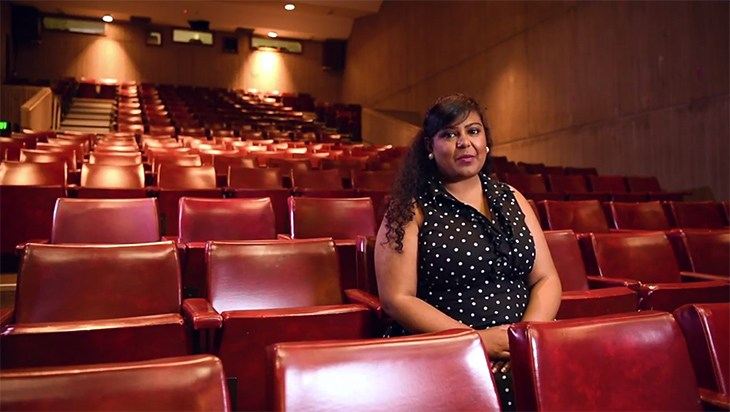
Hear from Jean as she shares her experiences studying a Master of Teaching at UniSA and her journey as a Bachelor of Arts graduate.
